Fleurs du Mal Magazine


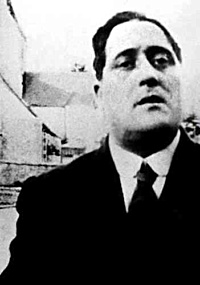
Guillaume Apollinaire
(1880 – 1918)
Il y a
Il y a un vaisseau qui a emporté ma bien-aimée
Il y a dans le ciel six saucisses et la nuit venant on dirait des asticots dont naîtraient les étoiles
Il y a un sous-marin ennemi qui en voulait à mon amour
Il y a mille petits sapins brisés par les éclats d’obus autour de moi
Il y a un fantassin qui passe aveuglé par les gaz asphyxiants
Il y a que nous avons tout haché dans les boyaux de Nietzsche de Goethe et de Cologne
Il y a que je languis après une lettre qui tarde
Il y a dans mon porte-cartes plusieurs photos de mon amour
Il y a les prisonniers qui passent la mine inquiète
Il y a une batterie dont les servants s’agitent autour des pièces
Il y a le vaguemestre qui arrive au trot par le chemin de l’Abre isolé
Il y a dit-on un espion qui rôde par ici invisible comme l’horizon dont il s’est indignement revêtu et avec quoi il se confond
Il y a dressé comme un lys le buste de mon amour
Il y a un capitaine qui attend avec anxiété les communications de la T.S.F. sur l’Atlantique
Il y a à minuit des soldats qui scient des planches pour les cercueils
Il y a des femmes qui demandent du maïs à grands cris devant un Christ sanglant à Mexico
Il y a le Gulf Stream qui est si tiède et si bienfaisant
Il y a un cimetière plein de croix à 5 kilomètres
Il y a des croix partout de-ci de-là
Il y a des figues de barbarie sur ces cactus en Algérie
Il y a les longues mains souples de mon amour
Il y a un encrier que j’avais fait dans une fusée de 15 centimètres et qu’on n’a pas laissé partir
Il y a ma selle exposée à la pluie
Il y a les fleuves qui ne remontent pas leur cours
Il y a l’amour qui m’entraîne avec douceur
Il y avait un prisonnier boche qui portait sa mitrailleuse sur son dos
Il y a des hommes dans le monde qui n’ont jamais été à la guerre
Il y a des Hindous qui regardent avec étonnement les campagnes occidentales
Ils pensent avec mélancolie à ceux dont ils se demandent s’ils les reverront
Car on a poussé très loin durant cette guerre l’art de l’invisibilité
Guillaume Apollinaire poésie
fleursdumal.nl magazine
More in: #Archive Concrete & Visual Poetry, *War Poetry Archive, Apollinaire, Guillaume, Archive A-B

William Shakespeare
(1564-1616)
In this dagger
Is this a dagger which I see before me,
The handle toward my hand?
Come, let me clutch thee.
I have thee not, and yet I see thee still.
Art thou not, fatal vision, sensible
To feeling as to sight? or art thou but
A dagger of the mind, a false creation,
Proceeding from the heat-oppressed brain?
William Shakespeare, “Macbeth”, Act 2 scene 1
Shakespeare 400 (1616 – 2016)
fleursdumal.nl magazine
More in: Archive S-T, Shakespeare, William
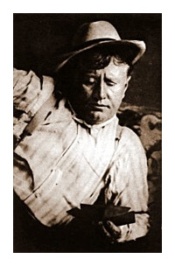
Let Me Feel Your Pulse
by O. Henry
So I went to a doctor.
“How long has it been since you took any alcohol into your system?” he asked.
Turning my head sideways, I answered, “Oh, quite a while.”
He was a young doctor, somewhere between twenty and forty. He wore heliotrope socks, but he looked like Napoleon. I liked him immensely.
“Now,” said he, “I am going to show you the effect of alcohol upon your circulation.” I think it was “circulation” he said; though it may have been “advertising.”
He bared my left arm to the elbow, brought out a bottle of whisky, and gave me a drink. He began to look more like Napoleon. I began to like him better.
Then he put a tight compress on my upper arm, stopped my pulse with the fingers, and squeezed a rubber bulb connected with an apparatus on a stand that looked like a thermometer. The mercury jumped up and down without seeming to stop anywhere; but the doctor said it registered two hundred and thirty- seven or one hundred and sixty-five or some such number.
“Now,” said he, “you see what alcohol does to the blood-pressure.”
“It’s marvellous,” said I, “but do you think it a sufficient test? Have one on me, and let’s try the other arm.” But, no!
Then he grasped my hand. I thought I was doomed and he was saying good-bye. But all he wanted to do was to jab a needle into the end of a finger and compare the red drop with a lot of fifty-cent. Poker chips that he had fastened to a card.
“It’s the hæmoglobin test,” he explained. “The colour of your blood is wrong.”
“Well,” said I, “I know it should be blue; but this is a country of mix-ups. Some of my ancestors were cavaliers; but they got thick with some people on Nantucket Island, so—”
“I mean,” said the doctor, “that the shade of red is too light.”
“Oh,” said I, “it’s a case of matching instead of matches.”
The doctor then pounded me severely in the region of the chest. When he did that I don’t know whether he reminded me most of Napoleon or Battling or Lord Nelson. Then he looked grave and mentioned a string of grievances that the flesh is heir to—most ending in “itis.” I immediately paid him fifteen dollars on account.
“Is or are it or some or any of them necessarily fatal?” I asked. I thought my connection with the matter justified my manifesting a certain amount of interest.
“All of them,” he answered cheerfully. “But their progress may be arrested. With care and proper continuous treatment you may live to be eighty-five or ninety.”
I began to think of the doctor’s bill. “Eighty-five would be sufficient, I am sure,” was my comment. I paid him ten dollars more on account.
“The first thing to do,” he said, with renewed animation, “is to find a sanatorium where you will get a complete rest for awhile, and allow your nerves to get into a better condition. I myself will go with you and select a suitable one.”
O. Henry
(1862 – 1910)
Let Me Feel Your Pulse
fleursdumal.nl magazine
More in: Archive G-H, Henry, O.
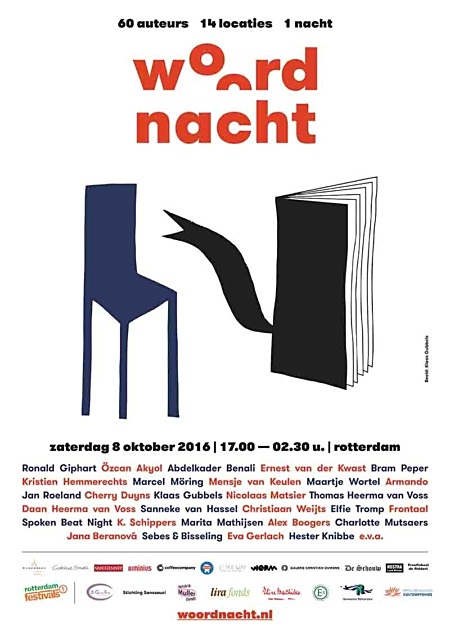
60 auteurs, 14 locaties, 1 nacht
Literair festival in het centrum van Rotterdam op zaterdag 8 oktober 2016 met optredens van diverse auteurs uit Nederland en Vlaanderen.
# Meer info op website Woordnacht 2016
fleursdumal.nl magazine
More in: Art & Literature News, Literary Events, MODERN POETRY, MUSIC
 Het Feest der Poëzie presenteert op zaterdagavond 8 oktober de derde editie van de Salon der Verzen bij het Pianola Museum te Amsterdam. Daarbuiten gaat de Poëziebar met absint en sonnetten weer op pad, ditmaal naar Wageningen en Leiden, en verschijnt deze ook bij de Amsterdamse Museumnacht.
Het Feest der Poëzie presenteert op zaterdagavond 8 oktober de derde editie van de Salon der Verzen bij het Pianola Museum te Amsterdam. Daarbuiten gaat de Poëziebar met absint en sonnetten weer op pad, ditmaal naar Wageningen en Leiden, en verschijnt deze ook bij de Amsterdamse Museumnacht.
Salon der Verzen: Eerder al tweemaal uitverkocht en nu terug in het nieuwe seizoen! Een geheel nieuw programma met werk van dichters van deze tijd, klassieke liederen, proza, verwondering en oude media. Met ditmaal als gastdichter Lennard van Rij. Verder gastvrouw Marijke Brekelmans, conservator Kasper Janse, verwonderaar Arjan van Vembde, sopraan Susanne Winkler, pianist Daan van de Velde, en voordrachtskunstenaar Simon Mulder.
Reserveren wordt aangeraden!
Praktische informatie Salon der Verzen
Entree: 15 euro/12,50 euro
(korting: student/65+/Stadspas)
8 oktober 2016
Adres: Pianolamuseum,
Westerstraat 106, Amsterdam
Aanvang: 20:30
Zaal open: 20:00
Reserveren: info@pianola.nl of www.feestderpoezie.nl
Informatie: www.feestderpoezie.nl
# Meer info op website feestderpoëzie
fleursdumal.nl magazine
More in: Art & Literature News, CLASSIC POETRY, Feest der Poëzie, Literary Events, MUSIC
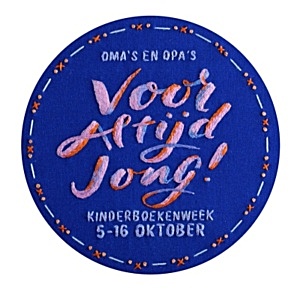
Kinderboekenweek 2016
5 – 16 oktober 2016
# Meer info op website Kinderboekenweek
fleursdumal.nl magazine
More in: - Book Lovers, Art & Literature News, Kinderboekenweek, Literary Events
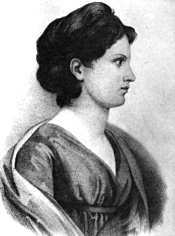
Karoline von Günderrode
(1780 – 1806)
Novalis
Novalis, deinen heil’gen Seherblicken
Sind aufgeschlossen aller Welten Räume,
Dir offenbart sich weihend das Gemeine,
Du schaust es in prophetischem Entzücken.
Du siehst der Dinge zukunftsvolle Keime
Und zu des Weltalls ewigen Geschicken,
Die gern dem Aug’ der Menschen sich entrücken,
Wirst du geführt durch ahndungsvolle Träume.
Du siehst das Recht, das Wahre, Schöne siegen,
Die Zeit sich selbst im Ewigen zernichten
Und Eros ruhend sich dem Weltall fügen;
So hat der Weltgeist liebend sich vertrauet
Und offenbart in Novalis Dichten,
Und wie Narziß in sich verliebt geschauet.
Karoline Günderrode Gedichte
fleursdumal.nl magazine
More in: Archive G-H, Karoline von Günderrode, Novalis

Leigh Hunt
(1784 – 1859)
Bellman’s Verses For 1814
Huzza, my boys! our friends the Dutch have risen,
Our good old friends, and burst the Tyrant’s prison!
Aye, and have done it without bloodshed too,
Like men, to sense as well as freedom true.
The moment, I’ll be sworn, that Ocean heard it,
With a new dance of waters it bestirr’d it;
And Trade, reviving from her trance of death,
Took a new lease of sunshine and of breath.
Let’s aid them, my fine fellows, all we can:—
Where’s finer business for an Englishman—
Who knows what ’tis to eat his own good bread,
And see his table-cloth securely spread—
Than helping to set free a neighbour’s oven?
Huzza! The Dutch for ever! Orange Boven!
Leigh Hunt poetry
fleursdumal.nl magazine
More in: Archive G-H, Hunt, Leigh
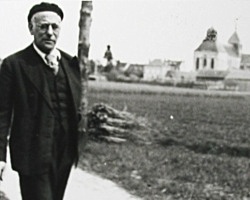
Max Jacob
(1876 – 1944)
Désir
Deux cous comme deux serpents
ne savent où ils se posent
deux baisers ferment la rose
ils ont la saveur du sang
Pays caché par l’habit
ce corps blanc qui me subit,
tu m’es la natale terre
de ma grêle et mon tonnerre
Qu’importe si l’enfer en tremble
si le ciel m’ôte pitié on meurt
de soif d’être ensemble
au même buisson liés
Bûche au foyer devient cendre!
et le désir de chacun?
la ferraille d’un scaphandre
sur un visage défunt
Aphrodite est la merveille
toujours nouvelle,
emplumée toujours espoir
se réveille qui toujours part en fumée
Quel refrain, la flatterie!
vain refrain deviendra gris
refrain de l’Avril mépris
Agenouille-toi et prie.
Max Jacob poetry
fleursdumal.nl magazine
More in: Archive I-J, Jacob, Max

William Shakespeare
(1564-1616)
Come, gentle night
“Come, gentle night; come, loving, black-browed night;
Give me my Romeo; and, when I shall die,
Take him and cut him out in little stars,
And he will make the face of heaven so fine
That all the world will be in love with night …”
William Shakespeare, Romeo and Juliet
Shakespeare 400 (1616 – 2016)
fleursdumal.nl magazine
More in: Archive S-T, Shakespeare, William

Adele Schopenhauer
(1797 – 1849)
Stolz und stumm
“Ich weiß es wohl, Du hast um mich geweint”
Es soll kein Wort, kein Hauch die Überzeugung nennen,
Es soll Dein Wesen nur still leuchtend in mir brennen;
Wenn Alles an mir kalt und regungslos erscheint,
Was kümmert es die Welt? Du hast um mich geweint!
Du weißt es wohl, wir haben stumm geweint!
Wir tragen durch die Welt die schwere Last im Innern,
Es braucht kein flüchtig Wort zu ewigem Erinnern,
Da uns kein glückliches zu ew’gem Bund vereint –
Was böte mir die Welt? Du hast um mich geweint!
Adele Schopenhauer Gedichte
fleursdumal.nl magazine
More in: Archive S-T, CLASSIC POETRY
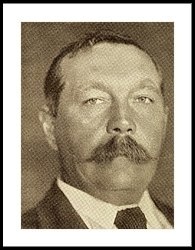 A Straggler of ‘15
A Straggler of ‘15
by Arthur Conan Doyle
It was a dull October morning, and heavy, rolling fog-wreaths lay low over the wet grey roofs of the Woolwich houses. Down in the long, brick-lined streets all was sodden and greasy and cheerless. From the high dark buildings of the arsenal came the whirr of many wheels, the thudding of weights, and the buzz and babel of human toil. Beyond, the dwellings of the workingmen, smoke-stained and unlovely, radiated away in a lessening perspective of narrowing road and dwindling wall.
There were few folk in the streets, for the toilers had all been absorbed since break of day by the huge smoke-spouting monster, which sucked in the manhood of the town, to belch it forth weary and work-stained every night. Little groups of children straggled to school, or loitered to peep through the single, front windows at the big, gilt-edged Bibles, balanced upon small, three-legged tables, which were their usual adornment. Stout women, with thick, red arms and dirty aprons, stood upon the whitened doorsteps, leaning upon their brooms, and shrieking their morning greetings across the road. One stouter, redder, and dirtier than the rest, had gathered a small knot of cronies around her and was talking energetically, with little shrill titters from her audience to punctuate her remarks.
“Old enough to know better!” she cried, in answer to an exclamation from one of the listeners. “If he hain’t no sense now, I ‘specs he won’t learn much on this side o’ Jordan. Why, ‘ow old is he at all? Blessed if I could ever make out.”
“Well, it ain’t so hard to reckon,” said a sharp-featured pale-faced woman with watery blue eyes. “He’s been at the battle o’ Waterloo, and has the pension and medal to prove it.”
“That were a ter’ble long time agone,” remarked a third. “It were afore I were born.”
“It were fifteen year after the beginnin’ of the century,” cried a younger woman, who had stood leaning against the wall, with a smile of superior knowledge upon her face. “My Bill was a-saying so last Sabbath, when I spoke to him o’ old Daddy Brewster, here.”
“And suppose he spoke truth, Missus Simpson, ‘ow long agone do that make it?”
“It’s eighty-one now,” said the original speaker, checking off the years upon her coarse red fingers, “and that were fifteen. Ten and ten, and ten, and ten, and ten—why, it’s only sixty-and-six year, so he ain’t so old after all.”
“But he weren’t a newborn babe at the battle, silly!” cried the young woman with a chuckle. “S’pose he were only twenty, then he couldn’t be less than six-and-eighty now, at the lowest.”
“Aye, he’s that—every day of it,” cried several.
“I’ve had ‘bout enough of it,” remarked the large woman gloomily. “Unless his young niece, or grandniece, or whatever she is, come to-day, I’m off, and he can find some one else to do his work. Your own ‘ome first, says I.”
“Ain’t he quiet, then, Missus Simpson?” asked the youngest of the group.
“Listen to him now,” she answered, with her hand half raised and her head turned slantwise towards the open door. From the upper floor there came a shuffling, sliding sound with a sharp tapping of a stick. “There he go back and forrards, doing what he call his sentry go. ‘Arf the night through he’s at that game, the silly old juggins. At six o’clock this very mornin there he was beatin’ with a stick at my door. ‘Turn out, guard!’ he cried, and a lot more jargon that I could make nothing of. Then what with his coughin’ and ‘awkin’ and spittin’, there ain’t no gettin’ a wink o’ sleep. Hark to him now!”
“Missus Simpson, Missus Simpson!” cried a cracked and querulous voice from above.
“That’s him!” she cried, nodding her head with an air of triumph. “He do go on somethin’ scandalous. Yes, Mr. Brewster, sir.”
“I want my morning ration, Missus Simpson.”
“It’s just ready, Mr. Brewster, sir.”
“Blessed if he ain’t like a baby cryin’ for its pap,” said the young woman.
“I feel as if I could shake his old bones up sometimes!” cried Mrs. Simpson viciously. “But who’s for a ‘arf of fourpenny?”
The whole company were about to shuffle off to the public house, when a young girl stepped across the road and touched the housekeeper timidly upon the arm. “I think that is No. 56 Arsenal View,” she said. “Can you tell me if Mr. Brewster lives here?”
The housekeeper looked critically at the newcomer. She was a girl of about twenty, broad-faced and comely, with a turned-up nose and large, honest grey eyes. Her print dress, her straw hat, with its bunch of glaring poppies, and the bundle she carried, had all a smack of the country.
“You’re Norah Brewster, I s’pose,” said Mrs. Simpson, eyeing her up and down with no friendly gaze.
“Yes, I’ve come to look after my Granduncle Gregory.”
“And a good job too,” cried the housekeeper, with a toss of her head. “It’s about time that some of his own folk took a turn at it, for I’ve had enough of it. There you are, young woman! In you go and make yourself at home. There’s tea in the caddy and bacon on the dresser, and the old man will be about you if you don’t fetch him his breakfast. I’ll send for my things in the evenin’.” With a nod she strolled off with her attendant gossips in the direction of the public house.
Thus left to her own devices, the country girl walked into the front room and took off her hat and jacket. It was a low-roofed apartment with a sputtering fire upon which a small brass kettle was singing cheerily. A stained cloth lay over half the table, with an empty brown teapot, a loaf of bread, and some coarse crockery. Norah Brewster looked rapidly about her, and in an instant took over her new duties. Ere five minutes had passed the tea was made, two slices of bacon were frizzling on the pan, the table was rearranged, the antimacassars straightened over the sombre brown furniture, and the whole room had taken a new air of comfort and neatness. This done she looked round curiously at the prints upon the walls. Over the fireplace, in a small, square case, a brown medal caught her eye, hanging from a strip of purple ribbon. Beneath was a slip of newspaper cutting. She stood on her tiptoes, with her fingers on the edge of the mantelpiece, and craned her neck up to see it, glancing down from time to time at the bacon which simmered and hissed beneath her. The cutting was yellow with age, and ran in this way:
“On Tuesday an interesting ceremony was performed at the barracks of the Third Regiment of Guards, when, in the presence of the Prince Regent, Lord Hill, Lord Saltoun, and an assemblage which comprised beauty as well as valour, a special medal was presented to Corporal Gregory Brewster, of Captain Haldane’s flank company, in recognition of his gallantry in the recent great battle in the Lowlands. It appears that on the ever-memorable 18th of June four companies of the Third Guards and of the Coldstreams, under the command of Colonels Maitland and Byng, held the important farmhouse of Hougoumont at the right of the British position. At a critical point of the action these troops found themselves short of powder. Seeing that Generals Foy and Jerome Buonaparte were again massing their infantry for an attack on the position, Colonel Byng dispatched Corporal Brewster to the rear to hasten up the reserve ammunition. Brewster came upon two powder tumbrils of the Nassau division, and succeeded, after menacing the drivers with his musket, in inducing them to convey their powder to Hougoumont. In his absence, however, the hedges surrounding the position had been set on fire by a howitzer battery of the French, and the passage of the carts full of powder became a most hazardous matter. The first tumbril exploded, blowing the driver to fragments. Daunted by the fate of his comrade, the second driver turned his horses, but Corporal Brewster, springing upon his seat, hurled the man down, and urging the powder cart through the flames, succeeded in forcing his way to his companions. To this gallant deed may be directly attributed the success of the British arms, for without powder it would have been impossible to have held Hougoumont, and the Duke of Wellington had repeatedly declared that had Hougoumont fallen, as well as La Haye Sainte, he would have found it impossible to have held his ground. Long may the heroic Brewster live to treasure the medal which he has so bravely won, and to look back with pride to the day when, in the presence of his comrades, he received this tribute to his valour from the august hands of the first gentleman of the realm.”
The reading of this old cutting increased in the girl’s mind the veneration which she had always had for her warrior kinsman. From her infancy he had been her hero, and she remembered how her father used to speak of his courage and his strength, how he could strike down a bullock with a blow of his fist and carry a fat sheep under either arm. True, she had never seen him, but a rude painting at home which depicted a square-faced, clean shaven, stalwart man with a great bearskin cap, rose ever before her memory when she thought of him.
She was still gazing at the brown medal and wondering what the “Dulce et decorum est” might mean, which was inscribed upon the edge, when there came a sudden tapping and shuffling upon the stair, and there at the door was standing the very man who had been so often in her thoughts.
But could this indeed be he? Where was the martial air, the flashing eye, the warrior face which she had pictured? There, framed in the doorway, was a huge twisted old man, gaunt and puckered, with twitching hands and shuffling, purposeless feet. A cloud of fluffy white hair, a red-veined nose, two thick tufts of eyebrow and a pair of dimly questioning, watery blue eyes—these were what met her gaze. He leaned forward upon a stick, while his shoulders rose and fell with his crackling, rasping breathing.
“I want my morning rations,” he crooned, as he stumped forward to his chair. “The cold nips me without ’em. See to my fingers!” He held out his distorted hands, all blue at the tips, wrinkled and gnarled, with huge, projecting knuckles.
“It’s nigh ready,” answered the girl, gazing at him with wonder in her eyes. “Don’t you know who I am, granduncle? I am Norah Brewster from Witham.”
“Rum is warm,” mumbled the old man, rocking to and fro in his chair, “and schnapps is warm, and there’s ‘eat in soup, but it’s a dish o’ tea for me. What did you say your name was?”
“Norah Brewster.”
“You can speak out, lass. Seems to me folk’s voices isn’t as loud as they used.”
“I’m Norah Brewster, uncle. I’m your grandniece come down from Essex way to live with you.”
“You’ll be brother Jarge’s girl! Lor, to think o’ little Jarge having a girl!” He chuckled hoarsely to himself, and the long, stringy sinews of his throat jerked and quivered.
“I am the daughter of your brother George’s son,” said she, as she turned the bacon.
“Lor, but little Jarge was a rare un!” he continued. “Eh, by Jimini, there was no chousing Jarge. He’s got a bull pup o’ mine that I gave him when I took the bounty. You’ve heard him speak of it, likely?”
“Why, grandpa George has been dead this twenty year,” said she, pouring out the tea.
“Well, it was a bootiful pup—aye, a well-bred un, by Jimini! I’m cold for lack o’ my rations. Rum is good, and so is schnapps, but I’d as lief have tea as either.”
He breathed heavily while he devoured his food. “It’s a middlin’ goodish way you’ve come,” said he at last. “Likely the stage left yesternight.”
“The what, uncle?”
“The coach that brought you.”
“Nay, I came by the mornin’ train.”
“Lor, now, think o’ that! You ain’t afeard o’ those newfangled things! By Jimini, to think of you comin’ by railroad like that! What’s the world a-comin’ to!”
There was silence for some minutes while Norah sat stirring her tea and glancing sideways at the bluish lips and champing jaws of her companion.
“You must have seen a deal o’ life, uncle,” said she. “It must seem a long, long time to you!”
“Not so very long neither. I’m ninety, come Candlemas; but it don’t seem long since I took the bounty. And that battle, it might have been yesterday. Eh, but I get a power o’ good from my rations!” He did indeed look less worn and colourless than when she first saw him. His face was flushed and his back more erect.
“Have you read that?” he asked, jerking his head towards the cutting.
“Yes, uncle, and I’m sure you must be proud of it.”
“Ah, it was a great day for me! A great day! The Regent was there, and a fine body of a man too! ‘The ridgment is proud of you,’ says he. ‘And I’m proud of the ridgment,’ say I. ‘A damned good answer too!’ says he to Lord Hill, and they both bu’st out a-laughin’. But what be you a-peepin’ out o’ the window for?”
“Oh, uncle, here’s a regiment of soldiers coming down the street with the band playing in front of them.”
“A ridgment, eh? Where be my glasses? Lor, but I can hear the band, as plain as plain! Here’s the pioneers an’ the drum-major! What be their number, lass?” His eyes were shining and his bony yellow fingers, like the claws of some fierce old bird, dug into her shoulder.
“They don’t seem to have no number, uncle. They’ve something wrote on their shoulders. Oxfordshire, I think it be.”
“Ah, yes!” he growled. “I heard as they’d dropped the numbers and given them newfangled names. There they go, by Jimini! They’re young mostly, but they hain’t forgot how to march. They have the swing-aye, I’ll say that for them. They’ve got the swing.” He gazed after them until the last files had turned the corner and the measured tramp of their marching had died away in the distance.
He had just regained his chair when the door opened and a gentleman stepped in.
“Ah, Mr. Brewster! Better to-day?” he asked.
“Come in, doctor! Yes, I’m better. But there’s a deal o’ bubbling in my chest. It’s all them toobes. If I could but cut the phlegm, I’d be right. Can’t you give me something to cut the phlegm?”
The doctor, a grave-faced young man, put his fingers to the furrowed, blue-corded wrist.
“You must be careful,” he said. “You must take no liberties.” The thin tide of life seemed to thrill rather than to throb under his finger.
The old man chuckled.
“I’ve got brother Jarge’s girl to look after me now. She’ll see I don’t break barracks or do what I hadn’t ought to. Why, darn my skin, I knew something was amiss!
“With what?”
“Why, with them soldiers. You saw them pass, doctor—eh? They’d forgot their stocks. Not one on ’em had his stock on.” He croaked and chuckled for a long time over his discovery. “It wouldn’t ha’ done for the Dook!” he muttered. “No, by Jimini! the Dook would ha’ had a word there.”
The doctor smiled. “Well, you are doing very well,” said he. “I’ll look in once a week or so, and see how you are.” As Norah followed him to the door, he beckoned her outside.
“He is very weak,” he whispered. “If you find him failing you must send for me.”
“What ails him, doctor?”
“Ninety years ails him. His arteries are pipes of lime. His heart is shrunken and flabby. The man is worn out.”
Norah stood watching the brisk figure of the young doctor, and pondering over these new responsibilities which had come upon her. When she turned a tall, brown-faced artilleryman, with the three gold chevrons of sergeant upon his arm, was standing, carbine in hand, at her elbow.
“Good-morning, miss,” said he, raising one thick finger to his jaunty, yellow-banded cap. “I b’lieve there’s an old gentleman lives here of the name of Brewster, who was engaged in the battle o’ Waterloo?”
“It’s my granduncle, sir,” said Norah, casting down her eyes before the keen, critical gaze of the young soldier. “He is in the front parlour.”
“Could I have a word with him, miss? I’ll call again if it don’t chance to be convenient.”
“I am sure that he would be very glad to see you, sir. He’s in here, if you’ll step in. Uncle, here’s a gentleman who wants to speak with you.”
“Proud to see you, sir—proud and glad, sir,” cried the sergeant, taking three steps forward into the room, and grounding his carbine while he raised his hand, palm forwards, in a salute. Norah stood by the door, with her mouth and eyes open, wondering if her granduncle had ever, in his prime, looked like this magnificent creature, and whether he, in his turn, would ever come to resemble her granduncle.
The old man blinked up at his visitor, and shook his head slowly. “Sit ye down, sergeant,” said he, pointing with his stick to a chair. “You’re full young for the stripes. Lordy, it’s easier to get three now than one in my day. Gunners were old soldiers then and the grey hairs came quicker than the three stripes.”
“I am eight years’ service, sir,” cried the sergeant. “Macdonald is my name—Sergeant Macdonald, of H Battery, Southern Artillery Division. I have called as the spokesman of my mates at the gunner’s barracks to say that we are proud to have you in the town, sir.”
Old Brewster chuckled and rubbed his bony hands. “That were what the Regent said,” he cried. “‘The ridgment is proud of ye,’ says he. ‘And I am proud of the ridgment,’ says I. ‘And a damned good answer too,’ says he, and he and Lord Hill bu’st out a-laughin’.”
“The non-commissioned mess would be proud and honoured to see you, sir,” said Sergeant Macdonald; “and if you could step as far you’ll always find a pipe o’ baccy and a glass o’ grog a-waitin’ you.”
The old man laughed until he coughed. “Like to see me, would they? The dogs!” said he. “Well, well, when the warm weather comes again I’ll maybe drop in. Too grand for a canteen, eh? Got your mess just the same as the orficers. What’s the world a-comin’ to at all!”
“You was in the line, sir, was you not?” asked the sergeant respectfully.
“The line?” cried the old man, with shrill scorn. “Never wore a shako in my life. I am a guardsman, I am. Served in the Third Guards—the same they call now the Scots Guards. Lordy, but they have all marched away—every man of them—from old Colonel Byng down to the drummer boys, and here am I a straggler—that’s what I am, sergeant, a straggler! I’m here when I ought to be there. But it ain’t my fault neither, for I’m ready to fall in when the word comes.”
“We’ve all got to muster there,” answered the sergeant. “Won’t you try my baccy, sir?” handing over a sealskin pouch.
Old Brewster drew a blackened clay pipe from his pocket, and began to stuff the tobacco into the bowl. In an instant it slipped through his fingers, and was broken to pieces on the floor. His lip quivered, his nose puckered up, and he began crying with the long, helpless sobs of a child. “I’ve broke my pipe,” he cried.
“Don’t, uncle; oh, don’t!” cried Norah, bending over him, and patting his white head as one soothes a baby. “It don’t matter. We can easy get another.”
“Don’t you fret yourself, sir,” said the sergeant. “‘Ere’s a wooden pipe with an amber mouth, if you’ll do me the honour to accept it from me. I’d be real glad if you will take it.”
“Jimini!” cried he, his smiles breaking in an instant through his tears. “It’s a fine pipe. See to my new pipe, Norah. I lay that Jarge never had a pipe like that. You’ve got your firelock there, sergeant?”
“Yes, sir. I was on my way back from the butts when I looked in.”
“Let me have the feel of it. Lordy, but it seems like old times to have one’s hand on a musket. What’s the manual, sergeant, eh? Cock your firelock—look to your priming—present your firelock—eh, sergeant? Oh, Jimini, I’ve broke your musket in halves!”
“That’s all right, sir,” cried the gunner laughing. “You pressed on the lever and opened the breech-piece. That’s where we load ’em, you know.”
“Load ’em at the wrong end! Well, well, to think o’ that! And no ramrod neither! I’ve heard tell of it, but I never believed it afore. Ah! it won’t come up to brown Bess. When there’s work to be done, you mark my word and see if they don’t come back to brown Bess.”
“By the Lord, sir!” cried the sergeant hotly, “they need some change out in South Africa now. I see by this mornin’s paper that the Government has knuckled under to these Boers. They’re hot about it at the non-com. mess, I can tell you, sir.”
“Eh—eh,” croaked old Brewster. “By Jimini! it wouldn’t ha’ done for the Dook; the Dook would ha’ had a word to say over that.”
“Ah, that he would, sir!” cried the sergeant; “and God send us another like him. But I’ve wearied you enough for one sitting. I’ll look in again, and I’ll bring a comrade or two with me, if I may, for there isn’t one but would be proud to have speech with you.”
So, with another salute to the veteran and a gleam of white teeth at Norah, the big gunner withdrew, leaving a memory of blue cloth and of gold braid behind him. Many days had not passed, however, before he was back again, and during all the long winter he was a frequent visitor at Arsenal View. There came a time, at last, when it might be doubted to which of the two occupants his visits were directed, nor was it hard to say by which he was most anxiously awaited. He brought others with him; and soon, through all the lines, a pilgrimage to Daddy Brewster’s came to be looked upon as the proper thing to do. Gunners and sappers, linesmen and dragoons, came bowing and bobbing into the little parlour, with clatter of side arms and clink of spurs, stretching their long legs across the patchwork rug, and hunting in the front of their tunics for the screw of tobacco or paper of snuff which they had brought as a sign of their esteem.
It was a deadly cold winter, with six weeks on end of snow on the ground, and Norah had a hard task to keep the life in that time-worn body. There were times when his mind would leave him, and when, save an animal outcry when the hour of his meals came round, no word would fall from him. He was a white-haired child, with all a child’s troubles and emotions. As the warm weather came once more, however, and the green buds peeped forth again upon the trees, the blood thawed in his veins, and he would even drag himself as far as the door to bask in the life-giving sunshine.
“It do hearten me up so,” he said one morning, as he glowed in the hot May sun. “It’s a job to keep back the flies, though. They get owdacious in this weather, and they do plague me cruel.”
“I’ll keep them off you, uncle,” said Norah.
“Eh, but it’s fine! This sunshine makes me think o’ the glory to come. You might read me a bit o’ the Bible, lass. I find it wonderful soothing.”
“What part would you like, uncle?”
“Oh, them wars.”
“The wars?”
“Aye, keep to the wars! Give me the Old Testament for choice. There’s more taste to it, to my mind. When parson comes he wants to get off to something else; but it’s Joshua or nothing with me. Them Israelites was good soldiers—good growed soldiers, all of ’em.”
“But, uncle,” pleaded Norah, “it’s all peace in the next world.”
“No, it ain’t, gal.”
“Oh, yes, uncle, surely!”
The old corporal knocked his stick irritably upon the ground. “I tell ye it ain’t, gal. I asked parson.”
“Well, what did he say?”
“He said there was to be a last fight. He even gave it a name, he did. The battle of Arm—Arm——”
“Armageddon.”
“Aye, that’s the name parson said. I ‘specs the Third Guards’ll be there. And the Dook—the Dook’ll have a word to say.”
An elderly, grey-whiskered gentleman had been walking down the street, glancing up at the numbers of the houses. Now as his eyes fell upon the old man, he came straight for him.
“Hullo!” said he; “perhaps you are Gregory Brewster?”
“My name, sir,” answered the veteran.
“You are the same Brewster, as I understand, who is on the roll of the Scots Guards as having been present at the battle of Waterloo?”
“I am that man, sir, though we called it the Third Guards in those days. It was a fine ridgment, and they only need me to make up a full muster.”
“Tut, tut! they’ll have to wait years for that,” said the gentleman heartily. “But I am the colonel of the Scots Guards, and I thought I would like to have a word with you.”
Old Gregory Brewster was up in an instant, with his hand to his rabbit-skin cap. “God bless me!” he cried, “to think of it! to think of it!”
“Hadn’t the gentleman better come in?” suggested the practical Norah from behind the door.
“Surely, sir, surely; walk in, sir, if I may be so bold.” In his excitement he had forgotten his stick, and as he led the way into the parlour his knees tottered, and he threw out his hands. In an instant the colonel had caught him on one side and Norah on the other.
“Easy and steady,” said the colonel, as he led him to his armchair.
“Thank ye, sir; I was near gone that time. But, Lordy I why, I can scarce believe it. To think of me the corporal of the flank company and you the colonel of the battalion! How things come round, to be sure!”
“Why, we are very proud of you in London,” said the colonel. “And so you are actually one of the men who held Hougoumont.” He looked at the bony, trembling hands, with their huge, knotted knuckles, the stringy throat, and the heaving, rounded shoulders. Could this, indeed, be the last of that band of heroes? Then he glanced at the half-filled phials, the blue liniment bottles, the long-spouted kettle, and the sordid details of the sick room. “Better, surely, had he died under the blazing rafters of the Belgian farmhouse,” thought the colonel.
“I hope that you are pretty comfortable and happy,” he remarked after a pause.
“Thank ye, sir. I have a good deal o’ trouble with my toobes—a deal o’ trouble. You wouldn’t think the job it is to cut the phlegm. And I need my rations. I gets cold without ’em. And the flies! I ain’t strong enough to fight against them.”
“How’s the memory?” asked the colonel.
“Oh, there ain’t nothing amiss there. Why, sir, I could give you the name of every man in Captain Haldane’s flank company.”
“And the battle—you remember it?”
“Why, I sees it all afore me every time I shuts my eyes. Lordy, sir, you wouldn’t hardly believe how clear it is to me. There’s our line from the paregoric bottle right along to the snuff box. D’ye see? Well, then, the pill box is for Hougoumont on the right—where we was—and Norah’s thimble for La Haye Sainte. There it is, all right, sir; and here were our guns, and here behind the reserves and the Belgians. Ach, them Belgians!” He spat furiously into the fire. “Then here’s the French, where my pipe lies; and over here, where I put my baccy pouch, was the Proosians a-comin’ up on our left flank. Jimini, but it was a glad sight to see the smoke of their guns!”
“And what was it that struck you most now in connection with the whole affair?” asked the colonel.
“I lost three half-crowns over it, I did,” crooned old Brewster. “I shouldn’t wonder if I was never to get that money now. I lent ’em to Jabez Smith, my rear rank man, in Brussels. ‘Only till pay-day, Grig,’ says he. By Gosh! he was stuck by a lancer at Quatre Bras, and me with not so much as a slip o’ paper to prove the debt! Them three half-crowns is as good as lost to me.”
The colonel rose from his chair laughing. “The officers of the Guards want you to buy yourself some little trifle which may add to your comfort,” he said. “It is not from me, so you need not thank me.” He took up the old man’s tobacco pouch and slipped a crisp banknote inside it.
“Thank ye kindly, sir. But there’s one favour that I would like to ask you, colonel.”
“Yes, my man.”
“If I’m called, colonel, you won’t grudge me a flag and a firing party? I’m not a civilian; I’m a guardsman—I’m the last of the old Third Guards.”
“All right, my man, I’ll see to it,” said the colonel. “Good-bye; I hope to have nothing but good news from you.”
“A kind gentleman, Norah,” croaked old Brewster, as they saw him walk past the window; “but, Lordy, he ain’t fit to hold the stirrup o’ my Colonel Byng!”
It was on the very next day that the old corporal took a sudden change for the worse. Even the golden sunlight streaming through the window seemed unable to warm that withered frame. The doctor came and shook his head in silence. All day the man lay with only his puffing blue lips and the twitching of his scraggy neck to show that he still held the breath of life. Norah and Sergeant Macdonald had sat by him in the afternoon, but he had shown no consciousness of their presence. He lay peacefully, his eyes half closed, his hands under his cheek, as one who is very weary.
They had left him for an instant and were sitting in the front room, where Norah was preparing tea, when of a sudden they heard a shout that rang through the house. Loud and clear and swelling, it pealed in their ears—a voice full of strength and energy and fiery passion. “The Guards need powder!” it cried; and yet again, “The Guards need powder!”
The sergeant sprang from his chair and rushed in, followed by the trembling Norah. There was the old man standing up, his blue eyes sparkling, his white hair bristling, his whole figure towering and expanding, with eagle head and glance of fire. “The Guards need powder!” he thundered once again, “and, by God, they shall have it!” He threw up his long arms, and sank back with a groan into his chair. The sergeant stooped over him, and his face darkened.
“Oh, Archie, Archie,” sobbed the frightened girl, “what do you think of him?”
The sergeant turned away. “I think,” said he, “that the Third Guards have a full muster now.”
Sir Arthur Conan Doyle (1859 – 1930)
Round the Red Lamp: Being Facts and Fancies of Medical Life
A Straggler of ‘15 (#03)
fleursdumal.nl magazine
More in: Doyle, Arthur Conan, Doyle, Arthur Conan, DRUGS & DISEASE & MEDICINE & LITERATURE, Round the Red Lamp
Thank you for reading Fleurs du Mal - magazine for art & literature